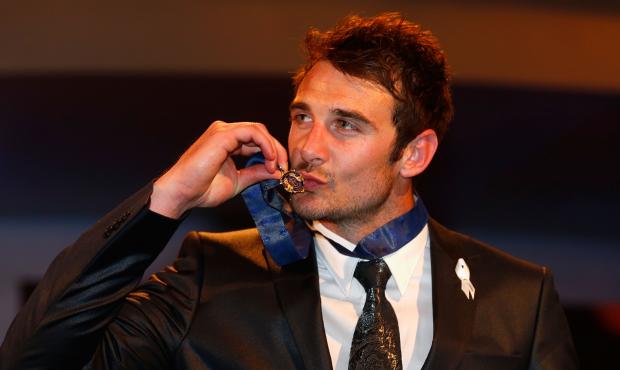People intricately linked to the Australian Sports Anti-Doping Authority's investigation into Watson's Essendon Football Club have no idea why, after months of careful stage-managing by everyone associated with the Bombers, would the captain publicly admit to an understanding he had taken a substance adjudged as banned.
How Essendon might argue the case
In failing to identify reason or motivation other than pure honesty for Watson's words, those people have been left with the strong view that the comments can only reflect negatively on the player himself, his club, his teammates, the AFL and the AFL Players' Association.
Essendon has been in near-meltdown since early February, when the ASADA/AFL investigation began into the substances administered by the club to its players from late 2011 into 2012, and parts of it are in a state of heightened panic following Watson's appearance on Fox Footy's On the Couch.
Watson responsible for AOD-9604 use
The AFLPA, which up to this point negotiated a very delicate defence of the Essendon playing list, is now also extremely concerned as to how investigators will react.
Following Watson's stance, Essendon is clearly no longer fighting this battle under a united front. It is players arguing their case, alongside coaches/officials arguing theirs.
ASADA did not have any positive tests on Essendon players, but it now has an interesting public admission relating to anti-obesity drug AOD-9604, as well as a clear understanding of who provided the players with the advice on certain substances, to factor in to its deliberations.
There may not be a better bloke in the AFL than Watson, but he has inadvertently compromised the standing of his football club as it attempts to negotiate its way out of the most complex set of circumstances ever witnessed in the AFL.
He's also allowed people to have real reason to ask if he should keep his Brownlow Medal from last year and he has invited more scrutiny and public comment of an issue which was, finally, drawing to a formal conclusion.
 If there, indeed, had been an indication given to the club by ASADA, which had been strongly suggested, that its players would escape severe sanction, then his comments will surely mean such an arrangement is revisited at the least, and possibly disregarded.
If there, indeed, had been an indication given to the club by ASADA, which had been strongly suggested, that its players would escape severe sanction, then his comments will surely mean such an arrangement is revisited at the least, and possibly disregarded.Essendon has been working on a legal argument that AOD-9604 was not a performance enhancing substance. The drug's status under the WADA policy falls under the S0 category, the catch-all clause which makes reference to drugs not approved for human consumption, and not the more specific S2 category.
The Bombers had been adamant that nothing illegal took place in its substance program run by sports scientist Stephen Dank and high performance manager Dean Robinson, who are no longer at the club.
Effectively, the club has been forcing ASADA to prove a case, not be handed one.
Let's go back to April 24, when John Fahey, the head of World Anti-Doping Agency, at the end of a long conversation with The Footy Show said that anti-obesity drug AOD-9604 "does not have approval from a therapeutic regulator, it has been prohibited (by WADA) since January 1, 2011".
Fahey went on: "ASADA knows it (AOD9604) is prohibited."
Exactly two months later, Watson said: "I signed that consent form and my understanding, after it being given through (club doctor) Bruce Reid and the club, that I was receiving AOD."
Watson went on to say: "The understanding we had through the advice we got and from the medical doctor at the football club was that it was a legal substance … It's my belief that we have done nothing wrong. I don't have a feeling of guilt. All I want is the truth to come out. It's not impacting on me. It's not a cloud that's hanging over me."
Just for a moment, remove Watson from this situation and replace him with, say, a female Chinese swimmer in the late 1990s in the lead-in to the Sydney Olympics, or maybe an East German track athlete of the early 1980s.
If one of those athletes was to have said "it's my belief that we have done nothing wrong; I don’t have a feeling of guilt", would an Australian sports fan have sympathy for them?
Twitter: @barrettdamian


